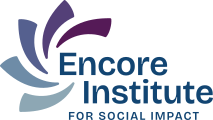We’re quickly approaching the most wonderful time of the year for many organizations—annual budgeting.
Not so wonderful, you say?
Budgeting is always challenging, and this year, the process promises to be even more adventuresome. Individual donors and foundations have seen their investment portfolios swing wildly since March, and many events have been cancelled with uncertain rescheduling options. We continue to face challenges with increasing COVID-19 infections and sputtering attempts to fully reopen the economy in cities and states across the country. It’s likely that these uncertainties will continue to impact the economic outlook through the end of 2020 and well into 2021. Even a crystal ball would be of little use. At the same time, many organizations have seen the need for their services and supports increase, and it’s unlikely that level of need will return to pre-COVID-19 levels for quite some time.
Many organizations will be taking a close look at expense estimates for the rest of 2020 and through 2021, trying to find those that can be cut or eliminated while meeting the many needs of the people they serve. Grant and fundraising consulting may seem to be a luxury that can’t be justified. If you’re thinking about bringing this work fully in-house or putting off plans to hire a consultant because you can’t afford it, I’d like to encourage you to think about why you can’t afford not to work with one.
Grant and fundraising consultants are actually a strategic investment in your organization where the return on your investment can be easily calculated. Working with a consultant has four key advantages for your organization, especially in unpredictable economic times.
1. EXPERIENCE
Experienced consultants work with a variety of organizations with diverse needs and challenges. Working with these organizations gives consultants insight into the many ways strategies can be developed and challenges mitigated. This experience, along with their role as an outside partner with your organization, helps them see challenges and opportunities from a new perspective with a toolkit full of experience.
It’s easy to fall back on the way things have always been done in these times; however, the environment has changed and many of your strategies, processes and procedures need to as well. There’s little to suggest we’ll “return to normal” anytime soon, and a “new normal,” which implies a certain predictability and stability, doesn’t seem to be on the horizon, either. Instead, we’re in the “now” normal, and it calls for different and flexible approaches. Consultants can help your staff develop strategies and solutions through a refreshed perspective while supporting them with best practices that will make their efforts go further.
2. AFFORDABILITY
Yes, consultants are affordable. You can often hire a seasoned consultant with years of experience on a limited basis rather than a full-time staff person who may be just entering the field. Often, ten strategically allocated hours from a tenured expert will yield a greater return than 20 hours from an employee who is early in his or her nonprofit career. Additionally, an experienced consultant can work with early-career staff, sharing knowledge and best practices that will expand their capacity more quickly.
3. FOCUS
You know that feeling you have when interrupted in the middle of a mentally challenging task—the feeling that it takes a long time to get back into a focused state? You’re not alone. Multiple studies have come to the same conclusion: it takes about 25 minutes to get back on task after an interruption. The best results in grant writing and fundraising efforts are often dependent on a significant block of work time with limited interruptions. It’s hard for your staff to avoid those interruptions. Phone calls, colleagues stopping in their offices—which these days is more likely a Zoom chat, and a variety of other things, are difficult to limit and control. If your grant writer is working on a complex grant proposal and he has five interruptions during the day, he or she will spend more than two hours refocusing before operating at a peak level again. Consultants can dedicate large chunks of uninterrupted time to your work. This results in efficiencies leading to high-quality results and high return on your investment in their services.
4. FLEXIBILITY
Finally, a consultant can provide you with full flexibility. You direct your consultants’ work for maximization of both their effort and your investment. For example, you may have four grant proposals due in a six-week period with ten more spread over the rest of the year. You can flex your consultant’s schedule to support your team most effectively in the busiest times and reduce engagement when things are more manageable internally. You might choose to develop less complicated grant proposals in-house, leaving complex proposals to your consultant. Or, you can have a fundraising consultant set up your donor database system and train someone on your staff to manage data entry. When working with a consultant, you can rest assured that projects will be completed on a timely basis—even when your world is a bit upside down.
Encore’s team of consultants has more than 150 years of combined experience helping nonprofits win grants, secure donations, establish and refine processes, and increase organizational health. The result for our clients? Greater social impact, stronger sustainability, and reduced staff stress. While you won’t likely work with all of our consultants, you’ll benefit from the compilation of our vast knowledge base. This affords your organization yet another edge, since our team works closely together, drawing on the experience of others to help troubleshoot and problem solve for our clients. Contact us today to learn more about how we can bring these advantages to your organization.
By Shelley Loethen, GPC, LSM

